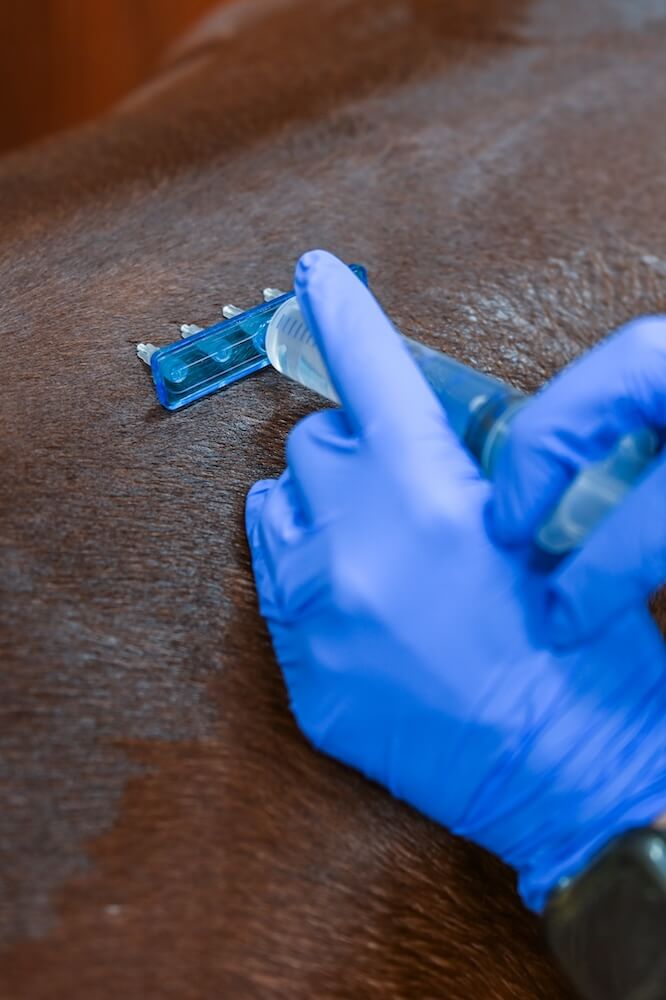Home » Orthopedics general
Orthopedie bij SMDC
Orthopedics
Opening hours
- Mon - Fri : 8.00 AM - 5.30 PM
- Saturday : closed
- Sunday : closed
+ 31 (0)412 745500
Orthopedic examination is central to identifying locomotion problems and spine-related issues in sport horses.
Our approach is based on the latest insights in functional anatomy, biomechanics, and pain physiology, and is carried out by veterinarians with ISELP training/certification and European specialists in Sports Medicine & Rehabilitation (ECVSMR). The entire horse is always considered during the evaluation.
Orthopedic examination
An orthopedic examination takes approximately two hours and includes the following components:
- Anamnesis: detailed discussion of the complaint, the horse’s use, previous treatments, and expectations.
- Static examination: assessment of conformation, posture, muscle development, and any structural deviations.
- General palpation: assessment of joints, muscles, ligaments, tendons, and the spine for temperature, swelling, pain, or movement restriction.
- Dynamic examination:
- Figure-eight pattern on a hard surface
- Straight line at walk and trot, on both hard and soft surfaces
- Grote volte op harde bodem
- Circles at walk, trot, and canter on a soft surface
- Flexion tests and, if indicated, nerve blocks
- Motion evaluation: Assessment of joints based on:
- Quality of movement
- Range of motion
- Pain response
- End-feel of the tests
- Specific palpation: targeted palpation of abnormalities for pain, heat, and swelling
Orthopedic treatment options
Ultrasound-guided injections
Ultrasound-guided injection techniques are used for the treatment of joints, tendons, ligaments, and bursae.
Mesotherapy
In mesotherapy, a series of superficial injections are administered in the painful or affected area—often the neck, back, and/or pelvic region. The injection fluid usually contains a combination of analgesic, anti-inflammatory, or muscle-relaxing agents.
Orthobiologics
These are biological products derived from the horse itself that reduce inflammation, stimulate tissue repair, and improve the horse’s comfort.
Shockwave therapy
Focused shockwave therapy (also known as extracorporeal shockwave therapy, ESWT) uses high-energy acoustic pulses that penetrate deep into the tissue. The energy is concentrated at a specific, adjustable depth, reaching tendons, ligaments, or bone.

Better to prevent than to cure
Symptoms of (potential) orthopedic problems
Difficulty or resistance when bending the neck may indicate problems. Also watch for poor muscle development or head shaking.
Lameness is often caused by an underlying orthopedic problem, which leads to overload and compensation.
Stopping under saddle or showing irritability when being girthed are clear warning signs.
You sense that something is not right—less enthusiasm, sudden resistance, or quick fatigue.
Is your horse experiencing orthopedic problems?
Together with top specialists in their respective fields, we ensure an accurate diagnosis and a targeted treatment plan.
Please contact us if you would like your horse to be examined for mobility issues.
